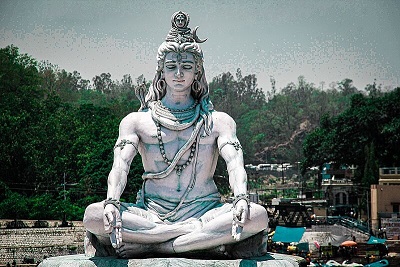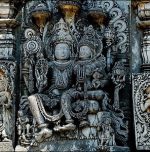Significance of Shravan and rituals dedicated to Lord Shiva

Shravan, a deeply revered month in Hinduism, is dedicated to the worship of Lord Shiva and is considered the holiest month of the year.
The month of Shravan begins at different times based on the Amanta and Purnimant calendars.
In 2024, according to the Amanta calendar followed in states like Andhra Pradesh, Telangana, and Maharashtra, Shravan starts on August 5 and concludes on September 3.
In contrast, the Purnimant calendar, observed in North Indian states, marks the beginning of Shravan on July 22.
During this auspicious period, devotees engage in various rituals and fasting practices, especially on Mondays, known as Sawan Somvar, to seek Lord Shiva’s blessings.
The rituals are believed to bring prosperity, fulfilment of wishes, and spiritual growth.
One of the most important practices during Shravan is the Jalabhishek – offering water to the Shiva Linga, symbolizing purity and devotion. Another key ritual is the Rudrabhishek, a special puja performed to honour Lord Shiva.
Devotees observe strict fasts on Sawan Somvar, abstaining from food and following a Saatvik diet, which excludes certain foods like onions, garlic, and leafy vegetables.
Many also refrain from consuming meat and alcohol during this period. It is believed that fasting and worship during Shravan bring immense spiritual benefits and help devotees attain their desires.
To enhance the spiritual experience, devotees are encouraged to perform specific rituals. Some include chanting the Mahamrityunjaya Mantra 108 times daily, wearing a Rudraksha Mala, and offering Panchamrit to the Shiva Linga.
Additionally, offering bael leaves to Lord Shiva and donating essential items to the needy are considered highly auspicious during this month.
However, there are also certain restrictions to be observed. Breaking a fast midway after taking a vow is seen as a sin, and men observing the fast are advised not to shave throughout the month.
By following these do’s and don’ts, devotees can fully honour the sanctity of Shravan and gain the divine blessings of Lord Shiva.
Image Credit: Shivam Malhotra, CC BY-SA 4.0, via Wikimedia Commons
Image Reference: https://commons.wikimedia.org/wiki/File:Hindu_God_Shiva.jpg









Leave a Reply